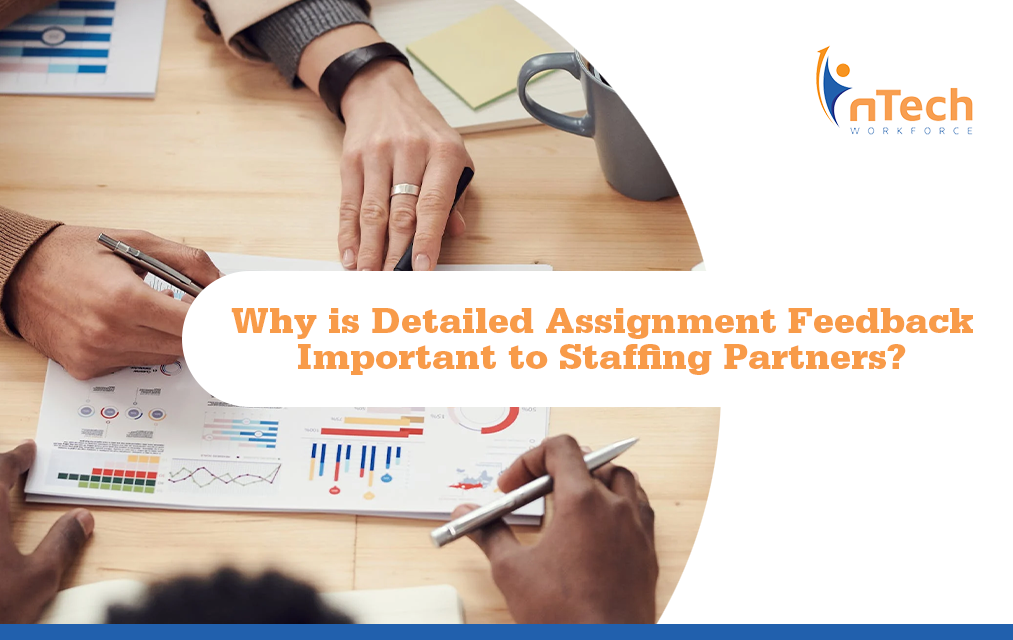What Are the Hidden Costs of DIY Hiring That a Staffing Agency Can Help Avoid?
When it comes to hiring, many growing companies lean toward a do-it-yourself (DIY) approach. On the surface, it seems like a smart, cost-effective...
7 min read
Arthur Ransier : Apr 16, 2024 9:00:00 AM

In today's competitive talent market, recruiting companies are a goldmine for businesses seeking top candidates. But their fees can be a hurdle. The fees are almost always the greatest barrier to working with talent acquisition or indirect procurement category leaders, who manage budgets for temporary jobs (staffing companies) or permanent jobs (recruiting companies).
If you're looking to land your dream hire without emptying your wallet, this blog post is your guide.
We'll break down the typical recruiter process, unveil their cost structure, and equip you with negotiation strategies to land lower fees. By understanding the value you bring as a client, beyond filling our coffers, you can close a deal that benefits both you and recruiting companies.
You’ll notice, perhaps not surprisingly, that partnership with recruiting companies isn’t so different from the business partnerships in place with your internal talent acquisition team.
Once you’ve identified a job vacancy originating from business growth, internal mobility, a new project, or separation – and you’ve determined that you need recruiting support for a niche hire, a temporary increase in hiring volume, or a strategic decision to outsource – then the first step is finding a recruiting company. Despite there being tens of thousands of recruiting companies, finding a strategic partner may take time and a few failed attempts; don’t be discouraged by the process; give existing partners a chance to get acclimated, ask trusted contacts for referrals, search online, find us at events, or (if your need is big enough), consider issuing a request for proposals (RFP).
Now that you’ve selected a partner, the next step is negotiating the deal terms and signing a deal (more on this below. After you’ve signed an agreement, you can expect the recruiting company to schedule a client kick-off call (the first one may run longer than the rest). A kick-off call includes an introduction to your client success manager, general job intake, and job analysis.
Job intake will include logistical or company-level information relevant to the search process, such as defining the work location, terms of employment, budget for salary/wages, expected travel, the interview process, and background check requirements (if using external/non-employee labor). Next up is job analysis, a critical step for our team at nTech; I would caution you against proceeding with staffing firms who cuts this corner. Job analysis ensures the recruiting company looks in the right place and qualifies candidates according to your needs; it allows you to craft the perfect job description and associated talking points for engaging the available talent market. Job analysis is about collaborating and sharing detailed information, including:
With the information in hand, a recruiting company will write a job description and go to market. Here’s what you can expect:
A. Candidate SearchAdditionally, you can follow the Client Onboarding Guide for best results:
The cost of recruiting company services can vary depending on several factors, including the type of position being filled, the candidate's experience level, and the geographic location. Here's a general breakdown:
This is the most common structure. Recruiting companies charge a percentage of the placed candidate's first-year salary, typically ranging from 15-25%. For example, if you hire someone with a $100,000 salary and the fee is 20%, you'd pay the recruiter $20,000.
This is a high-touch service where a recruiting company is dedicated solely to your search. They do more work, such as interviewing your board and customers for the executive search for a CEO. Fees are typically steeper, about 30-33% of first-year total compensation (base + incentives) plus a monthly administrative fee. There are typically stricter deal terms, covering non-solicit and warranties.
These specialists fill specific roles or projects. Their fees can be hourly, daily, or a fixed project rate but typically balance out to $100-200 per hour.
Remember, these are just averages. It's important to get quotes from multiple recruiting companies to compare rates and the services offered. You can also negotiate based on the value you bring as a client, which we will address more below.
The key difference between expenses for staffing temporary jobs and recruiting for direct-hire jobs is in the payroll expenses for a staffing company to employ a temporary/contingent worker; staffing companies typically yield a 15-25% gross profit, which is strikingly like the success fees charged by recruiting companies for direct-hire jobs. This makes sense. What a recruiting company saves in the time required for a staffing company to manage its employees, the recruiting company spends more closely managing ongoing relationships with its clients, which might otherwise not be as reliable as the hourly income generated by a temporary worker. With that established, the remaining expenses are very similar.
Both staffing agencies and recruiting companies carry expenses such as:
We could go incredibly granular on expenses, but the point is that business expenses for recruiting companies are like any other professional services business. It’s common for a healthy recruiting company to have, as a percentage of gross profit, a bottom-line profitability of 5%-7%.
Recruiting companies, while seemingly in the driver's seat with a hot talent market, face challenges. Here's where you, as a client, can step in and become a dream partner, alleviating some of their biggest pain points and earning discounts:
By understanding these pain points and addressing them as a client, you can build a mutually beneficial relationship with a recruiter, ultimately leading to better quality hires at a potentially lower cost.
While the cost benefits of a strong client partnership aren't always explicitly laid out, their worth to recruiting companies is significant. Here's how your reliability and collaboration can translate into savings:
The competitive landscape for recruiting companies is fierce. When you choose a single source for your recruitment needs, it eliminates the time and resources they'd spend competing for your business. This translates to potential fee reductions, as they can reallocate those resources toward serving you effectively.
Predictable Volume, Predictable Savings: Like exclusivity, if recruiting companies see a repeat, regular business from you throughout the year, then they should be willing to offer discounts to match the frequency. For permanent placement, expect discounts to be applied prospectively throughout the year. Quantify the value proposition by outlining potential discount ranges based on volume. For instance, you could say something like: "Many recruiting companies offer discounts, where the fee percentage decreases as the number of placements increases. For example, a company that fills less than ten positions with a recruiting company might see a 22% fee, while a client consistently filling more than ten positions throughout the year could secure tiered volume discounts based on paid invoices." This provides a clearer picture of the potential cost savings associated with volume.
Recruiting companies may offer RPO, which has alternative pricing models; these models can offer lower success fees (e.g., 10%) but may come with additional administrative fees as a percentage of your total payroll (e.g., 1.5% of annual payroll amortized). However, the benefits go beyond cost. RPO providers offer expertise, streamline hiring, and enhance your employer brand, potentially leading to long-term cost savings.
High-turnover workplaces are a nightmare for recruiting companies. Partnering with a company that prioritizes retention and has a smooth hiring process minimizes the risk of failed placements and the need for repeated searches. This translates to cost savings for the recruiting companies, which can invest more time in sourcing top talent for your stable positions.
A steady flow of jobs from a reliable client is gold for recruiting companies. It allows them to forecast revenue, plan staffing, and invest in building expertise relevant to your industry and needs. This predictability fosters trust and strengthens the partnership, potentially leading to more favorable fee structures or access to the recruiting company’s top talent pool.
The best client partnerships go beyond transactional benefits. Offering referrals, providing positive testimonials, and streamlining your hiring process all contribute to the recruiter's success. This goodwill can translate into more flexibility when negotiating fees or even access to the recruiter's network for your professional development.
Remember, a strong client partnership is a two-way street. By understanding the value you bring, you can leverage it to negotiate a win-win situation – securing top talent at a competitive rate while fostering a long-term relationship with your recruiting partner.
More than a staffing company, nTech Workforce builds winning teams and implements workforce best practices so that best-in-class companies maintain their competitive advantage. Check out stories and testimonials from clients, our staff, and our contingent worker staff serving clients around the country.

When it comes to hiring, many growing companies lean toward a do-it-yourself (DIY) approach. On the surface, it seems like a smart, cost-effective...

The Great Resignation has made headlines for the past few years. The job market is increasingly competitive, and more people than ever before are...

Feedback entails evaluating the performance of an individual or a group of workers in their job role or of an assignment they have completed. For...